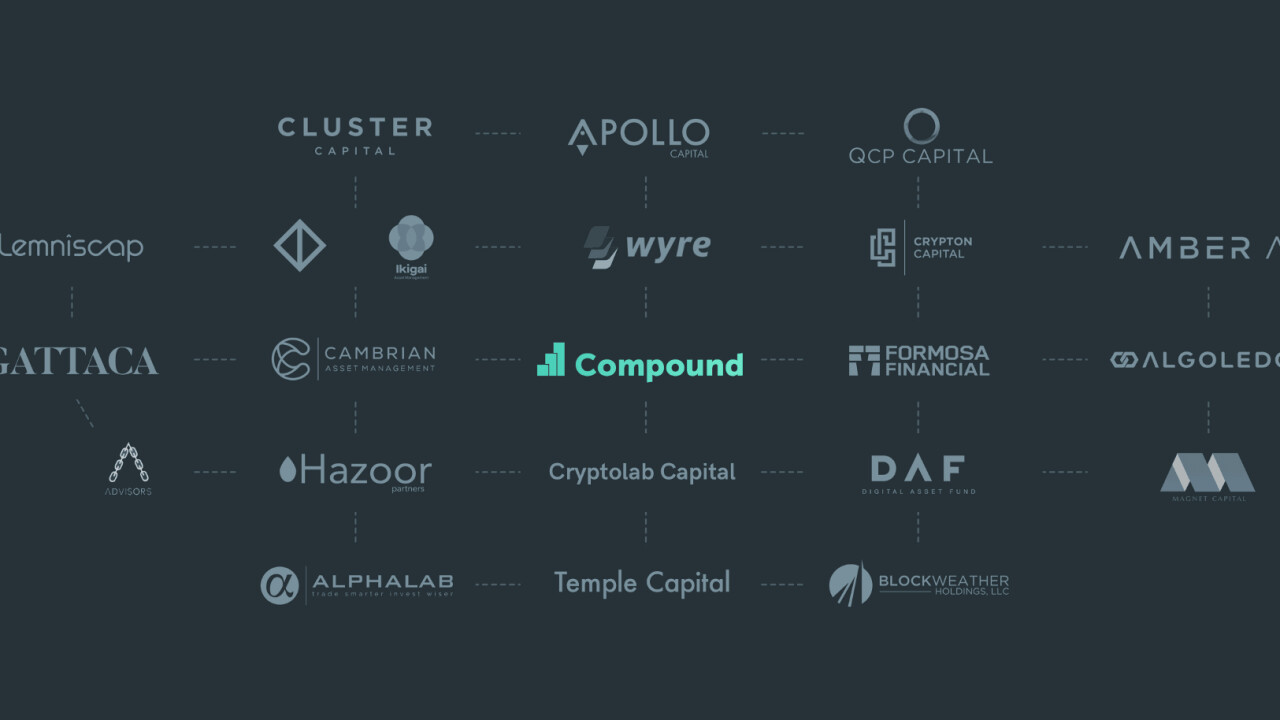
Cryptocurrencies may be the money of the future, but in comparison to traditional fiat currencies, they lack a mature and diverse ecosystem of financial services.
Addressing this is Compound, which launches in September, and wants to bring a functional, liquid money market to several significant cryptocurrencies.
From launch, the platform will support Ether and ETH-based tokens, as well as TrueUSD (TUSD), Basic Attention Token (BAT), 0X (ZRX), and Augur (REP). Users (including hedge funds, individuals, and other decentralized applications) can lend their coins and tokens for interest, or borrow with some collateral down.
Interest rates are adjusted algorithmically, based upon the fundamental guiding force of economics — supply and demand. This means that parties don’t have to spend time and effort negotiating terms.
From the outset, Compound has attracted some big names in finance. The most notable investor is Bain Capital Ventures — the VC wing of Bain Capital, which is the alternative investment firm co-founded by former Republican presidential candidate Mitt Romney.
This is obviously a big vote of confidence – and Compound has just announced that it’s signed contracts with 22 major fund partners, each having committing at least $100,000 to seed the platform’s liquidity. Many of these partners will ultimately contribute more, and Compound anticipates $5 million to $10 million of assets available to borrow at launch. Unlike other attempts at launching a cryptocurrency money market, Compound isn’t theoretical.
So, why would an individual borrow cryptocurrencies over, say, traditional fiat currencies? Speaking exclusively to Hard Fork, Compound founder Robert Leshner explained why:
“Borrowing demand for Ether comes from three sources,” Leshner said. The first is purchasing assets with cryptocoins, or investing in ICOs.
The second is short-selling the coin, which is a risky, but potentially lucrative move. Short selling is where you borrow an asset in the belief it’ll depreciate and immediately sell it, with an aim to repurchase it at a lower price, thereby pocketing the difference.
Finally, borrowers can use Ether as fuel to power smart contracts and Ethereum transactions.
Leshner also outlaid plans for the stablecoins and utility tokens it plans to offer. “Leverage is the primary source of borrowing demand for a stablecoin, such as TUSD, but users can also convert it into USD for real-world purchases,” he said.
“For utility tokens, such as ZRX, BAT, and REP, borrowing demand comes from their use in their own protocols, or to short-sell the asset,” he added.
Get the TNW newsletter
Get the most important tech news in your inbox each week.





